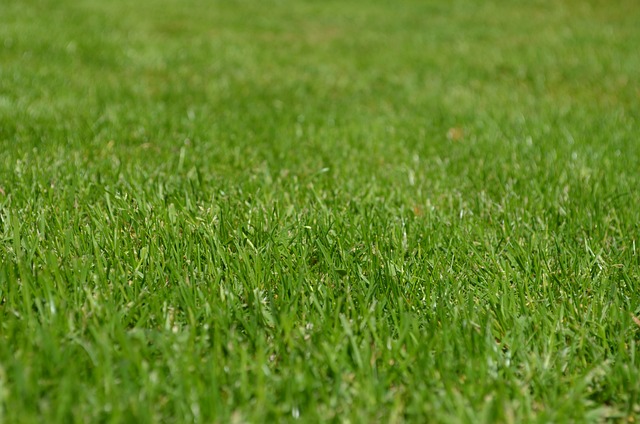Green Gardens: Eco-Friendly Yard Maintenance for Sustainable Landscapes
Yard waste removal and recycling are key practices for sustainable landscaping, reducing greenhouse …….

Yard waste removal and recycling are key practices for sustainable landscaping, reducing greenhouse gas emissions by transforming organic waste into nutrient-rich compost instead of contributing to methane emissions in landfills. Homeowners can significantly impact their environmental footprint by composting kitchen scraps and yard waste, which enriches soil with essential nutrients, beneficial microorganisms, and improves its structure and water retention. Adopting eco-conscious yard maintenance, including the use of native plants, conserves water, supports local biodiversity, and reduces the need for chemical fertilizers. These practices not only foster a healthier garden ecosystem but also contribute to a greener planet by diverting waste from landfills and promoting a closed-loop system that recycles organic matter back into the soil. Municipal composting programs support these efforts by processing yard waste into high-grade compost, further emphasizing the importance of yard waste removal and recycling in sustainable living.
title: “Sustainable Practices for Eco-Friendly Yard Maintenance”
As homeowners seek to harmonize their yards with environmental stewardship, sustainable yard maintenance emerges as a pivotal practice. This article delves into the transformative approach of eco-friendly yard care, emphasizing the significance of composting organic matter to enrich soil health. It also explores efficient yard waste removal and recycling methods, which not only streamline maintenance but also contribute to resource conservation. Furthermore, landscaping with native plants is highlighted as a strategy to foster biodiversity while significantly reducing water usage, ensuring your garden thrives in harmony with the ecosystem. Embrace these green initiatives to make a lasting impact on both your outdoor space and the planet.
- Embracing Eco-Friendly Yard Maintenance: Composting Organic Matter
- Efficient Yard Waste Removal and Recycling Methods
- Landscaping with Native Plants to Promote Biodiversity and Reduce Water Usage
Embracing Eco-Friendly Yard Maintenance: Composting Organic Matter

Integrating eco-friendly yard maintenance practices, particularly in the realm of composting organic matter, can significantly enhance sustainability efforts within your garden space. By diverting yard waste from landfills and instead recycling it into nutrient-rich compost, you not only reduce greenhouse gas emissions but also enrich the soil, fostering a more resilient ecosystem. Composting is a natural process that transforms kitchen scraps and yard waste, such as leaves, grass clippings, and garden trimmings, into a valuable soil amendment. This practice supports soil health by introducing beneficial microorganisms and improving its structure and water retention capabilities. By choosing yard waste removal services that offer composting programs, homeowners can ensure that their organic waste is repurposed effectively, contributing to a greener environment while also providing a sustainable fertilizer for their gardens. These services often provide guidelines and support to help property owners initiate and maintain their own compost piles or bins, thereby reducing reliance on chemical fertilizers and promoting a more sustainable lifestyle.
Furthermore, when opting for yard waste removal and recycling services that offer composting solutions, it’s beneficial to understand the types of materials that can be composted. Typically, these include plant-based trimmings, fruit and vegetable peels, coffee grounds, eggshells, and even paper products. By thoughtfully incorporating these materials into your compost system, you create a valuable resource for growing healthy plants and gardens, which in turn supports local wildlife and biodiversity. This closed-loop approach to yard maintenance not only minimizes environmental impact but also nurtures the land for future generations, making it a cornerstone of sustainable living practices.
Efficient Yard Waste Removal and Recycling Methods

Yard waste removal and recycling are pivotal practices for sustainable landscaping. Traditional yard waste disposal methods often involve sending organic matter to landfills, where it can contribute to methane emissions. However, with a shift towards sustainability, homeowners and municipalities alike are adopting eco-friendly approaches to handle this natural byproduct. Composting is one such method that transforms yard waste into nutrient-rich soil amendments, which can then enhance plant growth and reduce the need for chemical fertilizers. Another approach is chippers or shredders that break down branches and leaves into fine mulch, which can be used to suppress weeds, conserve soil moisture, and improve soil quality. Municipal yard waste programs often collect grass clippings, leaves, and brush during certain periods, diverting these materials to composting facilities where they are processed into high-quality compost. These facilities not only recycle organic matter but also produce a valuable product that supports the health of soils and plants, thus closing the loop on the waste cycle. Implementing efficient yard waste removal and recycling methods not only contributes to environmental sustainability by reducing landfill use but also promotes healthier gardens and landscapes through the beneficial reuse of organic materials. It is a win-win situation that supports both ecological balance and garden productivity.
Landscaping with Native Plants to Promote Biodiversity and Reduce Water Usage

Incorporating native plants into your yard design is a sustainable practice that promotes biodiversity and reduces water usage. Native plants are naturally adapted to the local climate and soil, which means they require less irrigation once established, significantly cutting down on water bills and conserving this precious resource. These plants also provide essential habitats for native wildlife, from butterflies and bees to birds and small mammals, fostering a vibrant ecosystem within your backyard. By choosing species that are indigenous to your area, you support the local ecosystem and reduce the need for chemical fertilizers and pesticides, which can harm beneficial insects and aquatic life. Additionally, yard waste removal and recycling play a crucial role in maintaining this eco-friendly landscape. Composting plant trimmings and using mulch not only enriches the soil but also minimizes the amount of waste sent to landfills. Many communities offer programs for yard waste collection and composting, making it easier to recycle these nutrients back into your garden. This approach to landscaping is not only beneficial for the environment but also creates a beautiful, low-maintenance outdoor space that reflects the natural beauty of your region.
Incorporating sustainable practices into yard maintenance is not only beneficial for the environment but also offers a myriad of rewards for homeowners. By adopting eco-friendly methods such as composting organic matter, households can enrich their soil naturally while cutting down on waste. The efficient removal and recycling of yard waste through local programs further minimizes environmental impact, ensuring that valuable resources are repurposed rather than discarded. Landscaping with native plants not only supports local biodiversity but also reduces the need for extensive watering, conserving a precious resource. Embracing these strategies in yard maintenance can create a healthier, more sustainable outdoor space. Homeowners are encouraged to explore their community’s resources for yard waste removal and recycling, as well as to consider native plant options for their landscaping needs. Through small, consistent efforts, each garden can contribute significantly to a greener planet.





